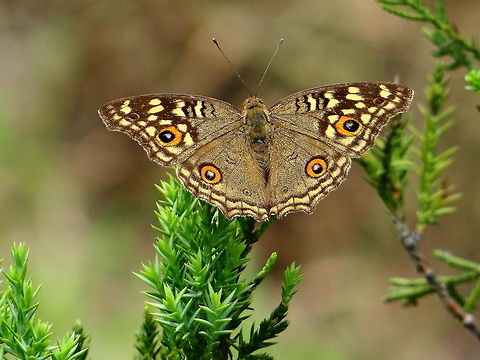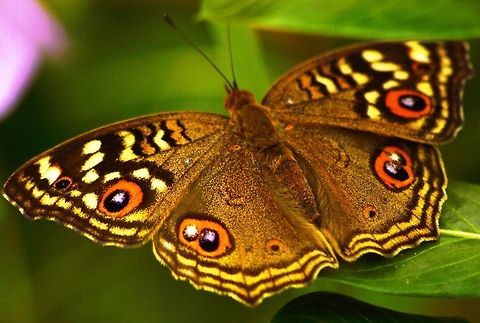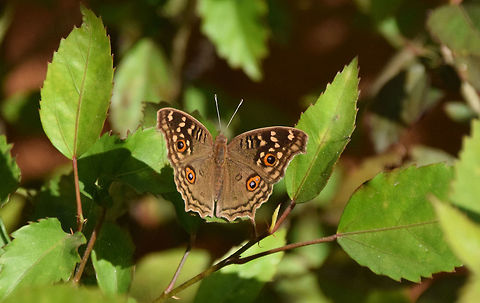
Appearance
It is brown with numerous eye-spots as well as black and lemon-yellow spots and lines on the upperside of the wings. The underside is a dull brown, with a number of wavy lines and spots in varying shades of brown and black. There is also an eyespot on the lower side of the forewing. The wet and dry season forms differ considerably in coloration and even shape. In the wet season form the markings are distinct and vivid and the wing shape is a little more rounded.In the dry season form the markings are obscure and pale especially on the underside and the wing margin is more angular and jagged. This helps it camouflage in the dried leaf-litter.
The Lemon Pansy is a very active butterfly and can be seen basking with its wings open facing the sun. It sits very low to the ground and can be approached easily. It feeds with its wings half open. It is a fairly strong flier and flies close to the ground with rapid wingbeats and often returns to settle back in the same spots.

Reproduction
Eggs are laid singly on the underside of leaves. The egg is green and barrel-shaped with longitudinal ridges.
Food
Caterpillars feed on plants from the families Acanthaceae, Amaranthaceae, Malvaceae, Rubiaceae, Tiliaceae and Verbenaceae. Recorded species include ''Alternanthera sessilis'', ''Barleria cristata'', ''Barleria prionitis'', ''Blechum pyramidatum'', ''Cannabis sativa'', ''Corchorus capsularis'', ''Dyschoriste repens'', ''Eranthemum pulchellum'', ''Hemigraphis schomburgkii'', ''Hygrophila auriculata'', ''Hygrophila costata'', ''Hygrophila lancea'', ''Lepidagathis formosensis'', ''Lepidagathis incurva'', ''Nelsonia canescens'', ''Ophiorrhiza japonica'', ''Phyla nodiflora'', ''Ruellia tuberosa'', ''Sida rhombifolia'', and ''Strobilanthes formosanus''.References:
Some text fragments are auto parsed from Wikipedia.